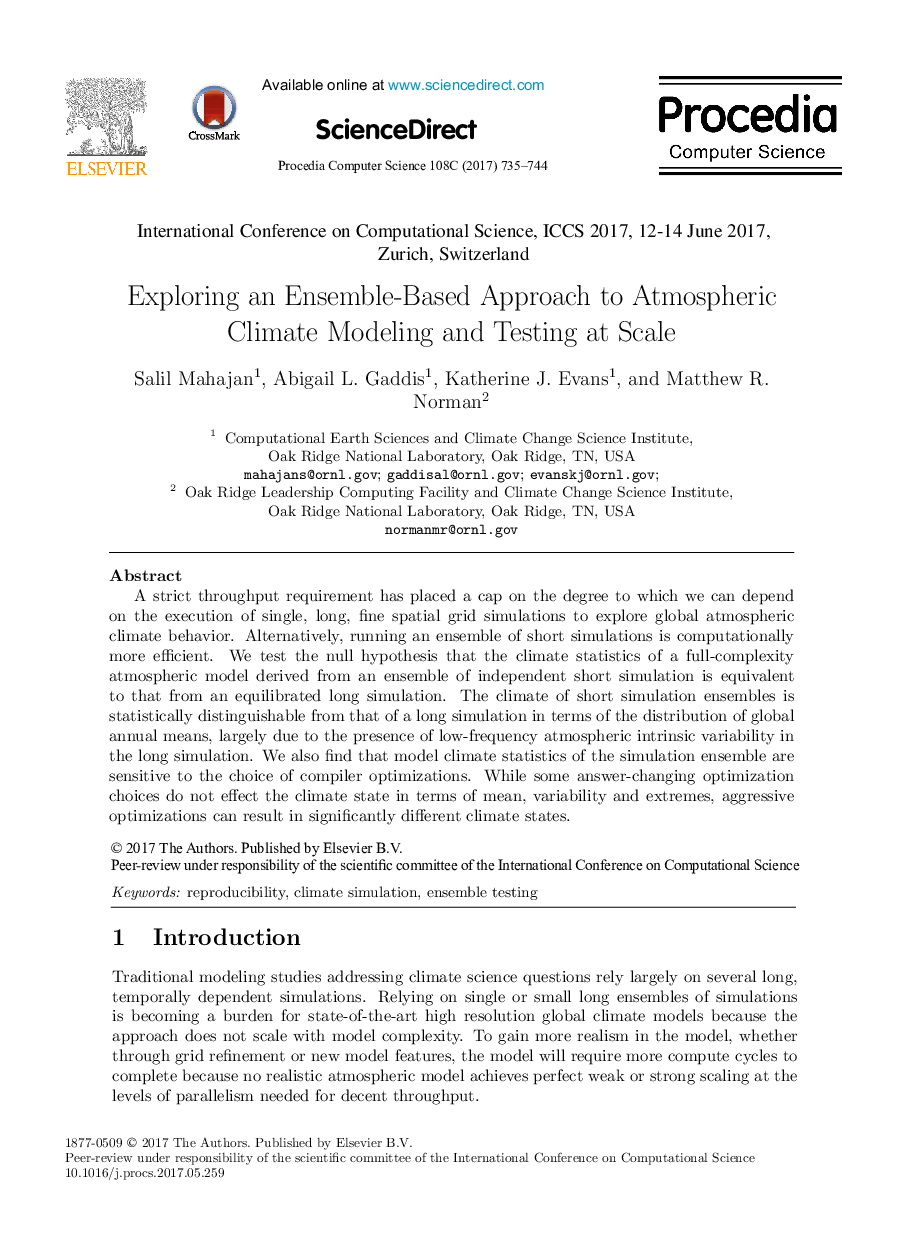| Article ID | Journal | Published Year | Pages | File Type |
|---|---|---|---|---|
| 4961004 | Procedia Computer Science | 2017 | 10 Pages |
A strict throughput requirement has placed a cap on the degree to which we can depend on the execution of single, long, fine spatial grid simulations to explore global atmospheric climate behavior. Alternatively, running an ensemble of short simulations is computationally more efficient. We test the null hypothesis that the climate statistics of a full-complexity atmospheric model derived from an ensemble of independent short simulation is equivalent to that from an equilibrated long simulation. The climate of short simulation ensembles is statistically distinguishable from that of a long simulation in terms of the distribution of global annual means, largely due to the presence of low-frequency atmospheric intrinsic variability in the long simulation. We also find that model climate statistics of the simulation ensemble are sensitive to the choice of compiler optimizations. While some answer-changing optimization choices do not effect the climate state in terms of mean, variability and extremes, aggressive optimizations can result in significantly different climate states.
